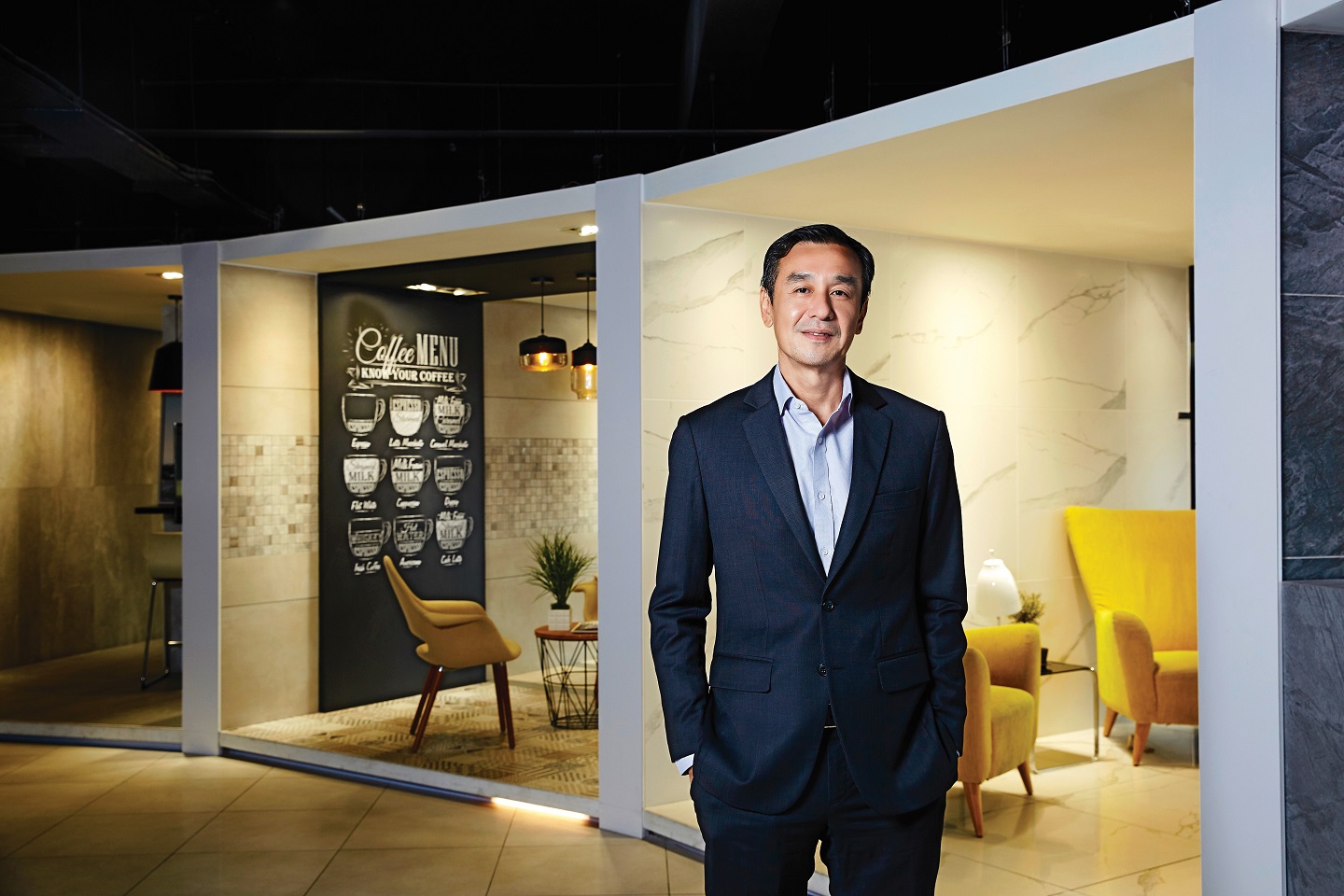
Niro prides itself on coming up with innovative products almost every year (Photo: SooPhye)
"This is not a new industry. Tiles have been made for thousands of years and in recent times, technology plays a major role in driving product development. It is now much easier for any company to develop products because of digitalisation,” says Ian Kok, managing director of Niro Ceramic Group.
Trial and error has not been completely eliminated from the process but the labour time now is much shorter. What does it mean for the tile industry? Well, for one, the market has become more competitive because companies are able to accelerate new product launches. The first-mover advantage has also slimmed down because the minute a new innovation is dropped, competitors are already working to beat you at your game. Change is inevitable and Kok prefers to move with the times.
“Prior to Covid-19, I was never a believer in flexible working hours or working from home but I have learnt that it’s possible to have this fluid working arrangement. We took the opportunity to come up with a work-from-home policy with our human resources department, where the head of departments can make the decision or implement this for their staff.”
That is not all he is changing. As Niro gears up for public listing in mid-2024, he has plans to take the group to greater heights: to become a significant regional player producing homogenous tiles. The company has come a long way since it was first established in Switzerland in 1979. Even though Niro has expanded to more than 100 markets worldwide, it has been successful in upholding its Swiss heritage of providing high-quality goods and services.
carrara-marble-gvg05.jpg
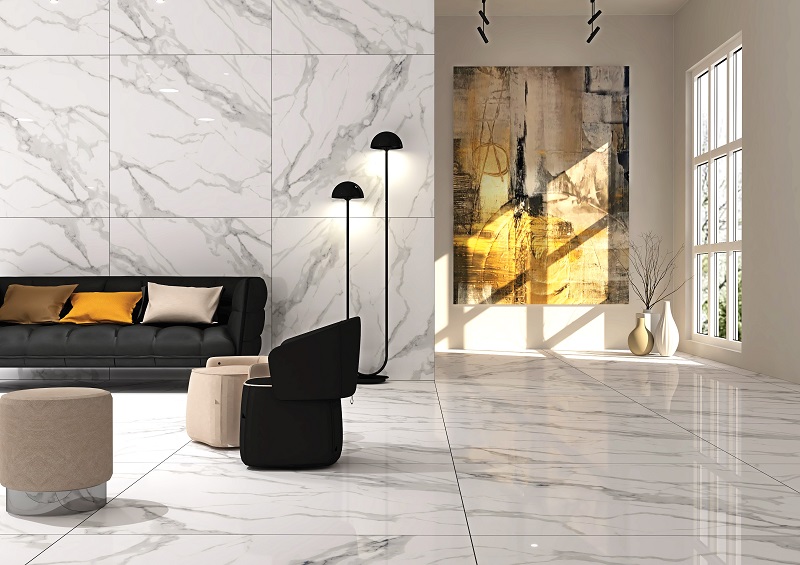
Journey with Niro
Kok joined the company in 2005 as its CEO, moving from another company in a similar industry. “It’s been an exciting journey. Since I joined, we were always looking at this trajectory of growth, geographical expansion and adding more product lines. We used to be in Seksyen 19, Petaling Jaya, but we outgrew the place and moved here in 2013,” he says, referring to the company’s headquarters in Shah Alam, Selangor.
Today, it has offices in Indonesia, China, Vietnam, the Philippines and India as well as a small office in Spain.
From CEO, Kok moved up to become an executive director in 2010 before being made MD two years ago. His role has definitely evolved in the 18 years he has been with the company. “As the business grew — and as I was able to contribute a little bit more — the board entrusted me with wider responsibilities. In my earlier days with the company, I did not manage finance directly but today, obviously, I manage everything.”
The learning has also grown for Kok, especially the functions that were previously not under his care. “It is something that you have to invest in yourself, use your own personal time to learn about topics or areas you know less of. I always encourage my colleagues to do the same because it makes our work more meaningful,” he explains.
About three years ago, the company invested in a learning management system (LMS) to upskill the entire workforce at Niro. Internally, it has created modules of learning for new joiners as part of its orientation programme as well as refresher courses for existing staff.
Kok firmly believes that the LMS is a great way to engage with the employees and “it motivates people when they have an opportunity to learn something new”. He says this is one way to overcome one of the many challenges businesses face today — to hire the right talent and retain them. The trainers are mainly made up of internal staff. “We got all the subject-matter experts within the company and they come up with the content for the LMS. Some of the modules are made for self-learning and staff can go through it at their own pace. We do procure externals trainer when there is a need.”
niro_ceramic.jpg
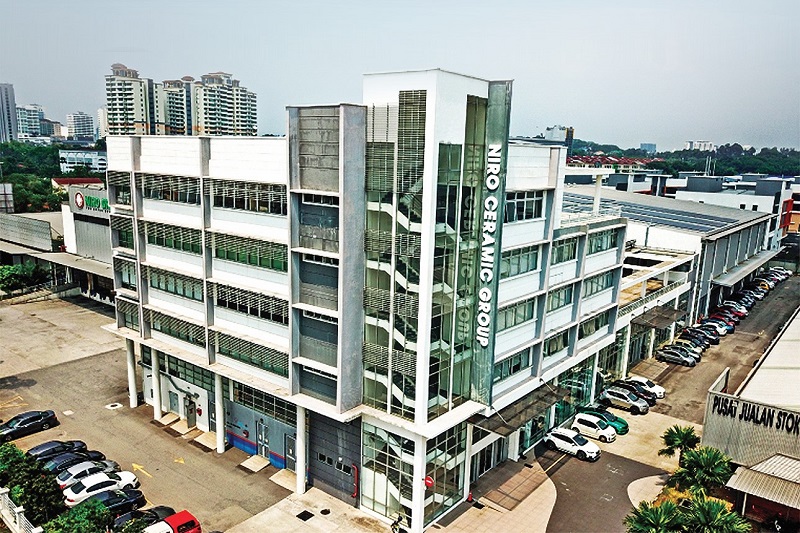
Overcoming challenges
“There have been many [challenges] in the last 17 years,” Kok recalls. But the main one remains attracting the right talent and motivating them to stay longer in the company. There is a clear shortage of good talent across all industries. “The other challenge that I have been observing in the tile industry — because we don’t only serve the Malaysian market — is that more countries are becoming more nationalistic. When the voices to support local industries becomes louder, the government is called to impose tariff barriers or trade barriers and import duties.”
He has seen more of that happening in the last two years, and the company is forced to think of other ways to remain relevant to the market and avoid being marginalised. “If we are not quick, we will be out of the market like many of the businesses that have been forced out.”
And, finally, he says one cannot talk about challenges without mentioning the unprecedented pandemic that forced offices, factories and businesses to shut down. “It was a very difficult time for everyone. It was imperative for us to have regular meetings and keep everyone informed about what the company leadership was doing to mitigate the problem. We were focused on giving confidence to the team, that there was a light at the end of the tunnel,” he recalls.
How would Kok describe his leadership style? “I’m always willing to listen and believe in rolling up my sleeves and going down to the ground to understand the problems my staff face, especially my customer-facing ones.” He is very hands-on and familiar with the tiniest details of the business. And he does it not because it is a style he intentionally chose to project but he feels that that is an effective way of driving improvement.
“Gone are the days where you just delegate and leave things to your people to handle. You can’t just give them this big picture direction and hope work will be done. I really don’t think you can be very effective that way in today’s environment.” He also encourages his staff to always be humble, be it with customers or colleagues. It aligns with his belief that when you remain grounded, you are more willing to learn.
black-marble-pps03-aylin-ps-living-1.jpg
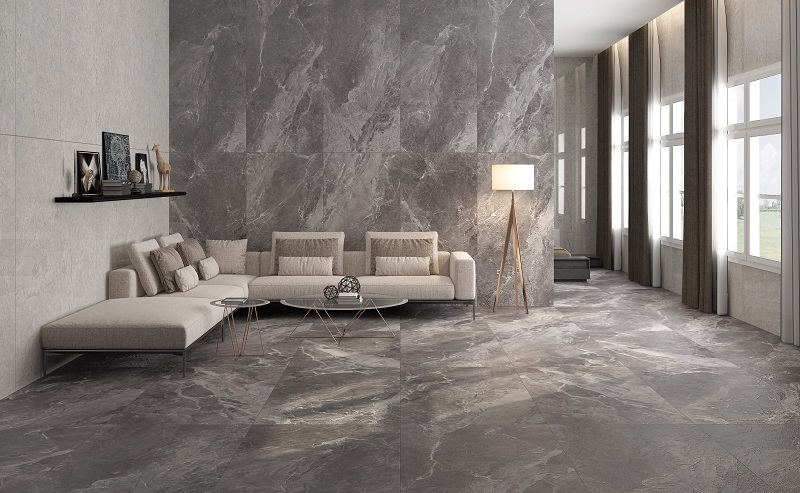
Points of differentiation
“The Niro brand name, for a long while now, has always been associated with premium tiles. We have to try to understand why that perception is in place. It is certainly not because we decided to say it; there must be factors that support that desire,” he states. The company has been upholding the highest quality standards since day one. “For tile manufacturing or tile specifications, we have an international standard that we follow. It’s under the ISO standard. But what we’ve done for ourselves is to set an internal specification that is twice as stringent.” The effort has paid off along the way because customer surveys show high confidence in the brand.
Niro prides itself on coming up with innovative products almost every year. “We were the first in the country and the Southeast Asian region to come up with a new product line called Slip Stop, a revolutionary product with a special infusion that allows glazed porcelain tiles to produce friction in wet conditions for both indoors and outdoors,” he explains. Homeowners now do not have to purchase two separate tiles for the different areas to create continuity. The response has been exceptional, needless to say. It has also been receiving high demand from condominium projects.
That’s not all. Niro also launched Malaysia’s first slim tiles at only 6mm thickness compared with conventional tiles that are 11mm to 18mm thick. Weighing just over 1kg per sq ft and 50% lighter than conventional-sized tiles, they can be easily installed on top of an existing tiled floor. It not reduces installation time up to 75% but makes renovation easier, cheaper and eco-friendly too.
The company has four core tile brands — Niro Granite, Zirconio, Portino and Muzze Da — driving the entire portfolio of about 740 stock-keeping units (SKUs). The Orin sanitaryware brand was established in 2003 to complement the tile selection. The company also has the sole distributor rights in Malaysia and Indonesia to market the made-in-Italy Petra Antiqua artistic collection, which is made of exquisite stone textures.
wood-effect-gtd02_cherry-bathroom_2.jpg
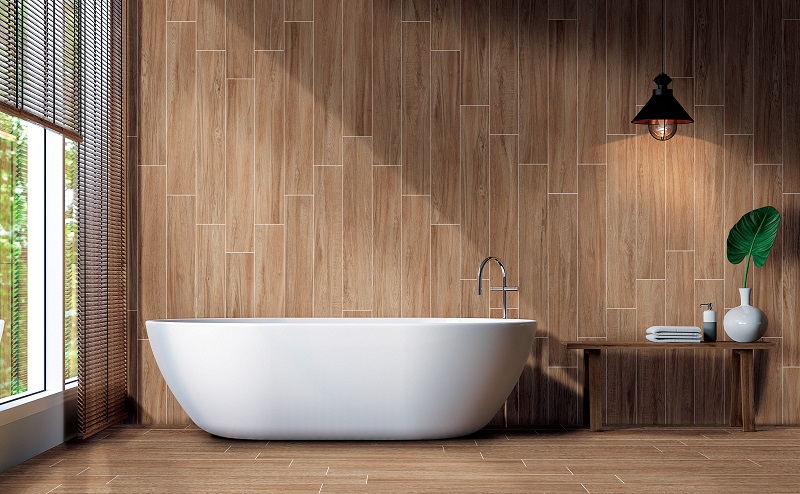
Going green
Niro definitely embraced sustainability even before the movement gained momentum in recent times. “For us as a company, we had embarked on activities and investment that are related to sustainability. In this building that we’re sitting in, we invested in solar panels some seven years ago. And of course, during that time, we were driven by the return on investment rather than the whole environmental, social and governance (ESG) agenda.”
The Niro factories have always done recycling programmes for cost-saving purposes but now that the topic is pretty much in everyone’s face, it will further spur them to increase the pace of the activities related to sustainability. “We undertook an audit for both our factories here and in Indonesia and the report shows which part of our process contributes to the environment, either in a favourable or unfavourable way. It’s a good starting point because we are serious about making this declaration and taking steps to improve it.”
Kok admits that this is an area that not everyone understands completely. They are learning and there is also a committee set up to meet regularly and share information that each member has accumulated with the objective of driving the company towards a more sustainable environment.
Creative lab
The concept of Creative Lab (CL) was to help end users visualise the space they wish to remodel using a powerful software on a 50-inch TV screen. Traditionally, shopping for tiles can be a tedious process with multiple visits to different showrooms to get a touch and feel of the product. This is usually done on weekends when there is no time constraint. It does not end there. Once you have set your eyes on the store you have the intention to purchase from, you have to wait for them to work out a drawing for you.
“When you walk into one of our CL outlets, you will be assisted by one of our sales designers and they are mostly interior design degree holders. All you have to do is provide the exact dimension of the room you are planning to renovate. Our staff will do an elevation drawing based on your preferred tiles’ texture, size and colour. We can even add in sanitaryware and mirrors for full effect to help you visualise your end product,” Kok explains. The drawing can be done under 15 minutes, all while you are having a drink and conversation with the sales staff who is assisting you. There are also samples of tiles to touch and feel.
“Once you are happy with the design, we will save the file and send it to you via email so you can share it with your family.” Just a couple of days prior to this conversation, the Creative Lab AR Home Design app was launched. It uses cutting-edge augmented reality technology to help users view the designer-created 3D model of their rooms with ease on their smartphone. With the technology, users are also free to point their phones to look around the area, so they can imagine their living spaces with CL’s tiles.
This is an extra service offered without charge at all CL showrooms around the country and it has definitely increased visibility, efficiency and revenue for the company.
sand-stone-effect-ggl02-bathroom-lr.jpg
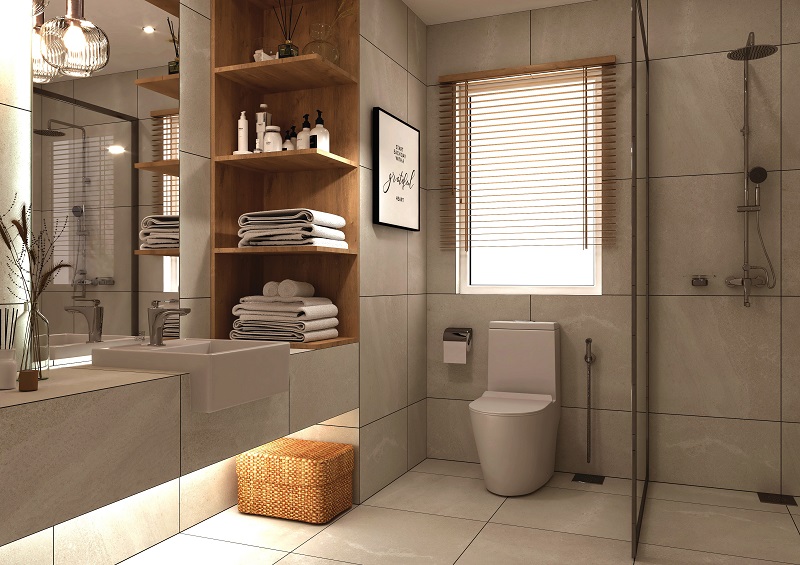
Bound for listing
The board of directors has given the management at Niro the approval to go ahead with a listing exercise by mid-next year. The plan was originally to be listed two years ago but the pandemic threw everything out of whack. “It’s an early phase for us, but we are already conferring with advisers on this impending listing. We are establishing the conditions [to be] as conducive as possible and, most importantly, we want to ensure that our financial results are maintained.”
When asked how much the company is planning to raise, Kok says Niro has a number in mind but is not able to share it at the moment. It will be using the capital raised to further expand the growth of the group not only in Malaysia but also in the region. “We will be investing in some of our facilities to be able to have a deeper penetration in the markets that we serve. We are weighing our options now.”
The long-term vision has always been consistent: to be a significant regional player. In Malaysia itself, Kok thinks they are probably, at least in terms of turnover, the largest and they would like to do that for the other countries within Southeast Asia where they currently have a presence in.
“The listing is going to be a big exercise, and the second phase of growth will be focused on bringing in younger people so that there will always be a cycle of succession.” Sometimes a real leader’s value is measured by succession planning, but above all, the exercise ensures a company’s continued success.
This article first appeared on May 1, 2023 in The Edge Malaysia.


